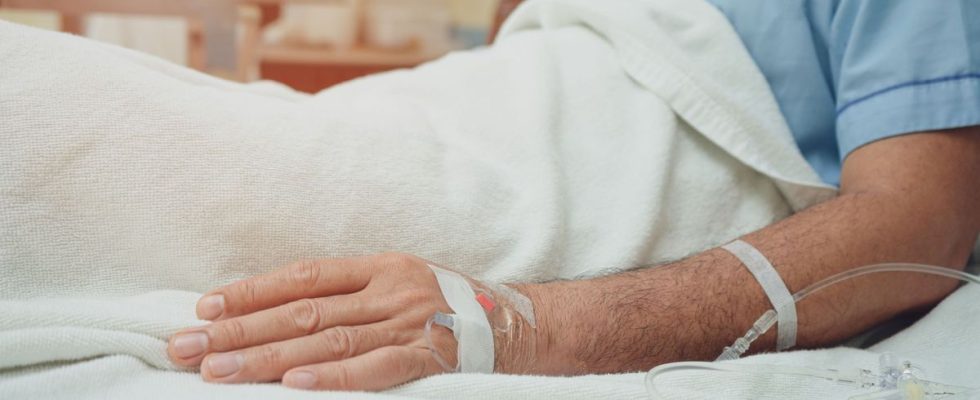Published on
Updated
Reading 2 mins.
in collaboration with
Dr Gérald Kierzek (Medical Director of Doctissimo)
According to a study conducted by French and Swiss researchers, a 31% increase in the risk of being diagnosed with cancer in the months following hospitalization was observed. It concerns patients who have been affected by a severe form of Covid-19.
It is a scientific study that sheds new light on knowledge related to Covid-19. Published in the scientific journal Nature, this work carried out by French and Swiss researchers, reports a 31% increase in the risk of diagnosis for patients who have been affected by a severe form of Covid-19.
A study of more than 40,000 hospitalized patients
For this work, scientists from Epi-Phare, a scientific interest group based in France, the Geneva Institute of Global Health and the University of Geneva relied on data concerning 41,302 people hospitalized in intensive care. after a Covid-19 infection, between February 15, 2020 and August 31, 2021.
This information was compared with that of 713,670 control persons. For the closest possible comparison, the data were matched according to age, sex and department.
More cancer diagnosis
According to their results, 2.2% of patients – or 897 in total – ended up in intensive care after contracting a severe form of Covid, were also diagnosed with cancer in the months following their infection. The figure is only 1.5%, for the witnesses studied during this work. “This suggests that severe SARS-CoV-2 infection may represent a marker for undiagnosed cancer” estimate the scientists. In addition, the most frequently found cancers are those affecting the kidney, the colon, the blood and the lungs.
Women under 60 have an increased risk
The other important point highlighted by scientists: the risk of cancer is greater in women and people under 60 years of age. “The risk of being diagnosed with cancer was highest in the first three months after hospitalization. Therefore, more systematic screening might be more effective during this time” esay the authors of the survey.
The point of view of Gérald Kierzek, emergency doctor and medical director of Doctissimo
“The results of this work are very good news for people who have had a severe form of Covid. So much the better for these patients, who are probably diagnosed and treated earlier. Unfortunately, this will not solve the problem of other patients treated late, on the contrary, due to the pandemic and its consequences: canceled appointments, postponed surgeries and follow-ups… In Canada, it is estimated that the number of cancer screenings breast, lung, colon and cervix decreased by 41% in 2020 compared to 2019. Inserm scientists have also demonstrated the impact of successive confinements on the delay in diagnosis for patients affected by colorectal cancers, who had a higher tumor burden and reduced chances of survival. It is a delay that we will never compensate, for these patients”.
